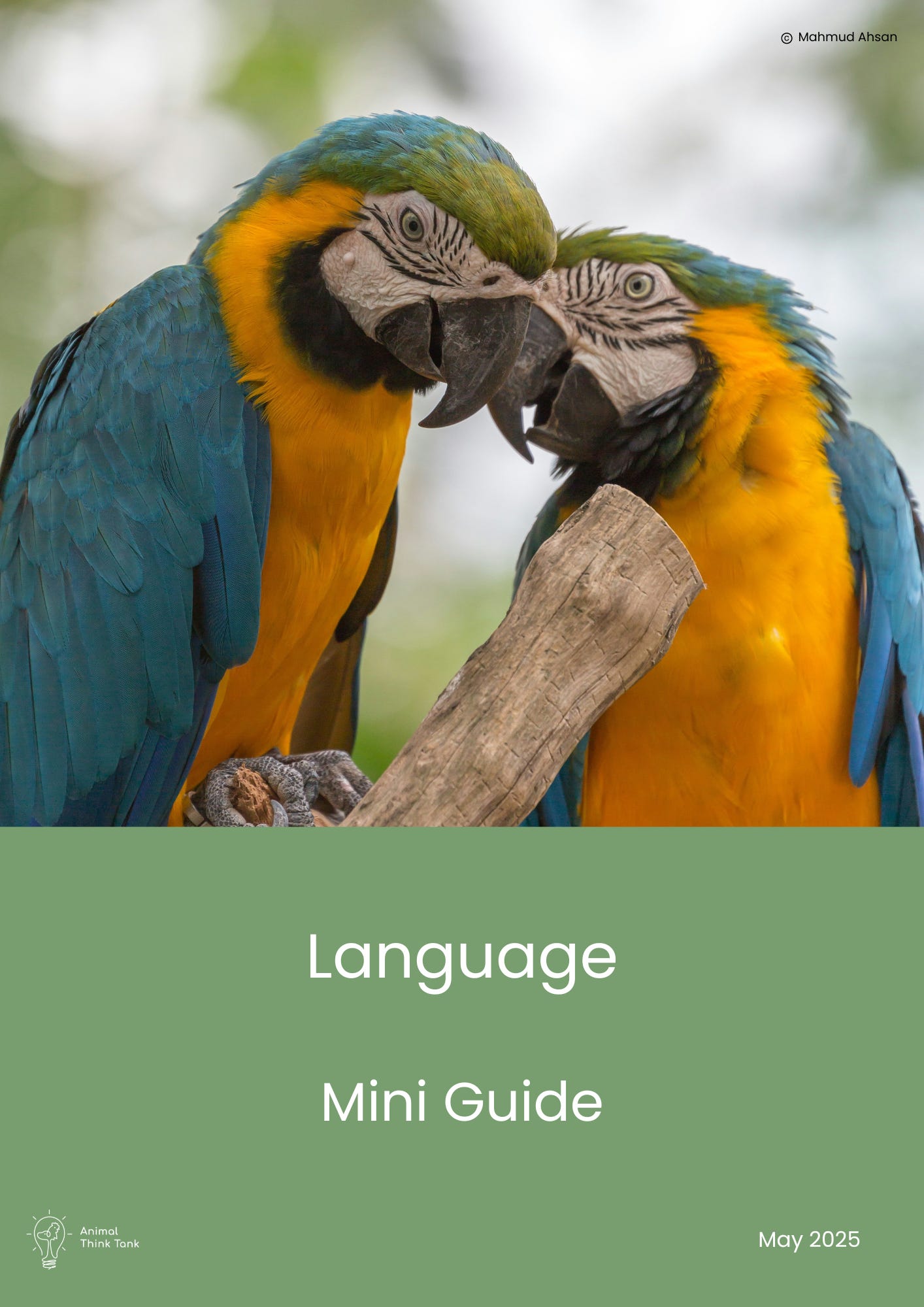Swap harmful terms for truthful ones - mini guide and examples inside...
Free download: everyday swaps that can help shift public thinking about animal issues
So many everyday phrases quietly reinforce speciesism. Our new Language Mini Guide shows how we can:
avoid reinforcing industry framing;
reframe harmful terms to help build empathy and support for animal freedom.
“Are you chicken?“ … “She’s a bitch.” … “Don’t be a sheep.” … “What a greedy pig.” … “She’s a cow.” … “He’s a snake.” … “What a rat...”
The othering of fellow animals has been normalised in everyday language for centuries, widening the perceived separation between humans and our animal cousins. To call a human an ‘animal’ is still perceived as a slur. Violence towards other animals has also been normalised through language – with idioms like: “Kill two birds with one stone” or “There’s more than one way to skin a cat”.
As animal freedom advocates, we know that harmful language like this should be challenged and avoided. But is there other problematic language that we’re using as a movement, and unintentionally reinforcing harmful frames and narratives?
Animal Think Tank’s Language Mini Guide takes a deep dive into that question. It offers practical advice and concrete examples of how small shifts in language can make a big difference to how people understand animal freedom – and how they relate to fellow animals in the first place.
Words shape worlds
Language is rarely neutral. The way we speak about other animals can reinforce the idea that they are ‘resources’ (e.g. ‘dairy cows’, ‘broiler chickens’, ‘livestock’), or help build connection with them as unique individuals – with personalities, families and the desire to live freely.
How we talk about the problem also affects how people relate to it. We can either talk about ‘welfare breaches’ or we can talk about farmed animals wanting ‘the freedom to play or be with their families’. Language can expand people’s moral imagination, or it can limit it. As author and activist bell hooks said:
“Our words are not without meaning, they are an action, a resistance.”
1. Lead with positive frames, not rebuttals
By negating a frame, we inadvertently reinforce it – as linguist George Lakoff pointed out with his book title: Don’t Think of an Elephant! For example, saying ‘animals are not products’ still activates a ‘products’ frame in people’s minds. Instead, we can lead with positive frames first, shifting people into more helpful ways of thinking:
2. Use active, truthful language
Industry language intentionally obscures harm through euphemism. Instead of reinforcing their terms, we can opt for language that exposes the reality of what’s being done to other animals:
3. Show the individual, not the ‘role’
We can avoid terms that imply that other animals are defined by their use, and instead choose language that reveals what’s being done to them, rather than normalising their exploitation. Even simple changes like using ‘he’, ‘she’ or ‘they’, instead of ‘it’, can support a deeper cultural shift.
4. Reinforce shared values
Terms like ‘animal rights’, ‘oppression’ or ‘speciesism’ are familiar in the movement, but can be abstract or alienating to wider audiences. Values-based language – like freedom, kindness, dignity, family – connects with something most people already care about. Values also encourage connection with identities that feel relatable rather than divisive:
5. Meet people where they are – then nudge them forward
Different audiences are at different points in their journey. Some are unaware of the issue, whereas others are already starting to make lifestyle changes or speak out. Our language should aim to nudge people forward – avoiding terms that jar, and choosing words that invite them into a bigger sense of ‘us’:
Changing language is foundational to changing the world
This Language Mini Guide is a tool to help us be more intentional about our language; it isn’t about perfection or political correctness. Because when we speak about other animals with clarity, compassion and connection, we aren’t just describing the world – we’re helping reshape it…










